Articles
Brooklyn: gendered Irish migration to the United States
By Carolina Rocha

Excerpt: “By choosing to build a family and home in America, Eilis embraces domesticity and belonging to a new national community, following the steps of previous generations of Irish immigrants who moved to the suburbs, had access to education and white-collar jobs, and thus separated themselves from Irish concerns and politics (Flynn 2011, 19). Brooklyn, however, tests the Irish female immigrant’s resolve to embrace her new identity as an Irish woman in America.”
Affective Production Value on Queer Community Television: A Case Study of the Gay Cable Network and Gay USA
By Lauren Herold

EXCERPT: “For twenty years, GCN provided LGBTQ people with both sobering political coverage of issues generally missing from mainstream television journalism and entertainment programming infused with a queer sensibility. While not a television network in the traditional sense – GCN had neither its own cable channel nor a system of affiliates through which to disseminate its programming – its founder and executive producer, Lou Maletta, who passed away in 2011, did distribute his series via videotape to a number of cities nationwide, including Atlanta, Chicago, and San Francisco. The word ‘network’ in the title was in some sense aspirational: Maletta hoped to one day create a profitable cable channel devoted to LGBTQ programming, a dream he never fulfilled (but that came to fruition in 2005 with the creation of Logo TV). While neither a commercial broadcast television network nor widely distributed via cable, GCN did provide a form of networked connectivity that allowed LGBTQ people interested in producing community media to do so long before the creation of digital and social media platforms in the 2000s.”
Figures in a landscape: work and beauty in sleep furiously
By Thomas Austin

EXCERPT: “The film’s attempted syncretism of referentiality and aesthetics takes shape primarily around the practices and relations of work, which link together humans, animals and the landscape and weather in which they are all situated. I will argue that this partial reconciliation occurs in two ways. Firstly, through self-reflexivity, whereby the film is presented as another kind of work, comparable to those recorded on screen. Secondly, through the (limited) revision of a picturesque aesthetic that arguably bypasses some of Winston’s criticisms to offer a relatively indirect social comment about this terrain. A key device here is the deliberate and repeated offering and rupturing of a touristic ‘view’ of the rural landscape, via reminders of its economic function, of the work that takes place on and with this land.“
Shameless, the push-pull of transatlantic fiction format adaptation, and star casting
By Simone Knox
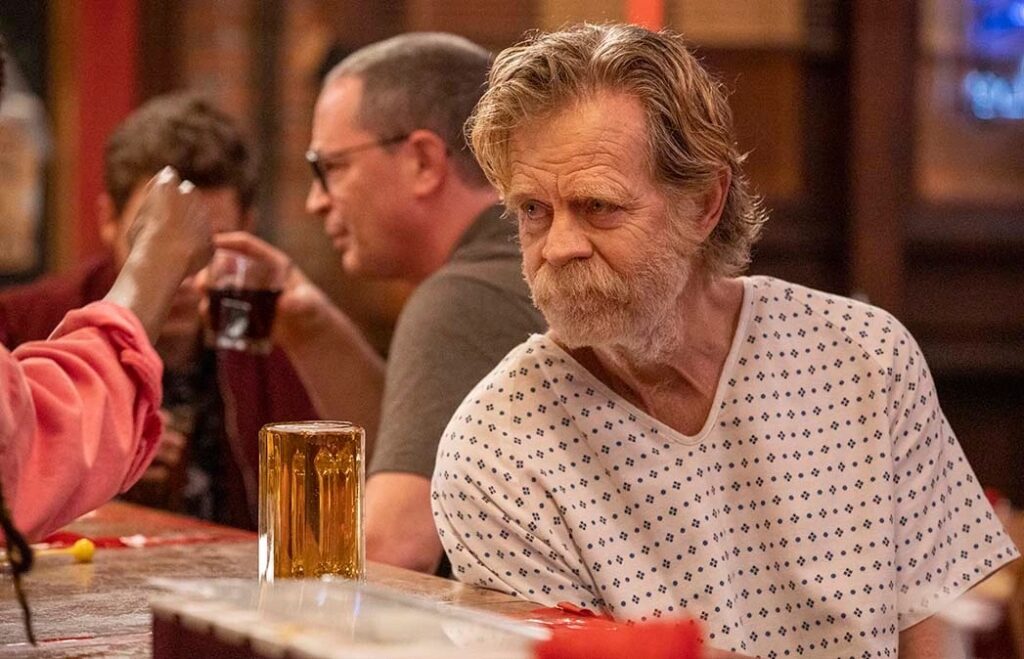
EXCERPT: “Shameless UK has been strongly located within a British television production context (one marked by increasing deregulation and commercial pressures). It is likely that considerations concerning exporting to and/or adapting for the USA were not paramount during its conception and development. Importantly, its subject matter (a poor dysfunctional family, headed by a feckless, drug-taking father, living on a council estate in Manchester) is deeply implicated in issues concerning social class in a Northern English context. This connects Shameless UK to British television’s long traditions of social realist drama and Northern Realist drama (see Millington 1993); and Robin Nelson has insisted that Shameless UK is ‘distinctively British’ (Nelson 2007, 52) in the way in which it draws on social realism as well as on popular television forms of soap opera and sitcom.”
Spielberg and ideology: nation, class, family, and War of the Worlds
By Leighton Grist
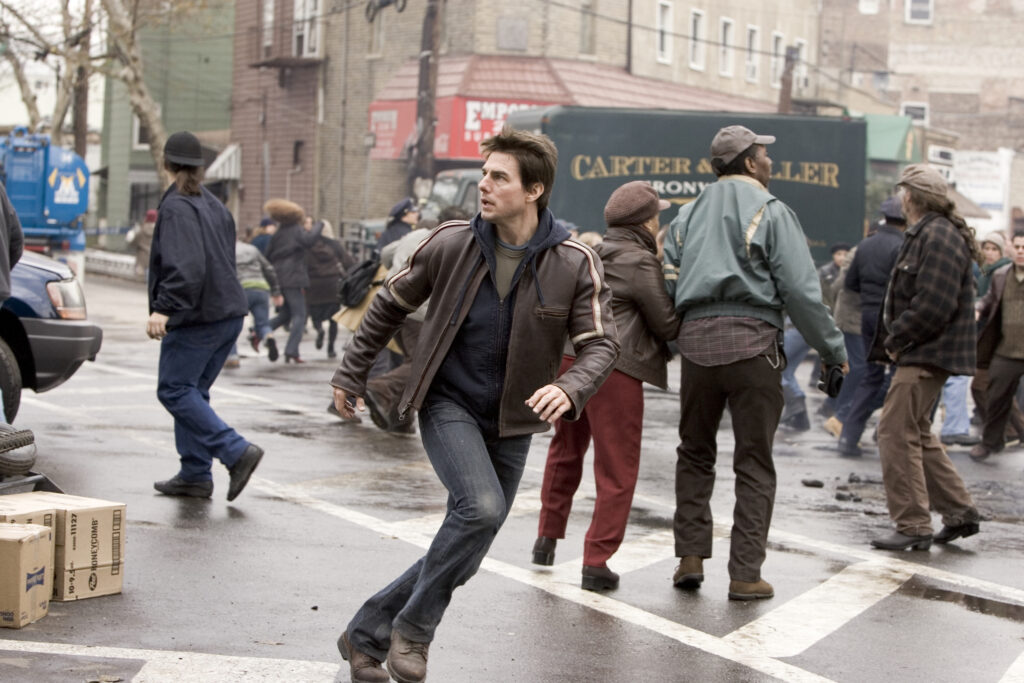
EXCERPT: “In turn, as the global threat embodied by the aliens is, through the film’s narrative focus on Ray, Robbie, and Rachel, more specifically positioned as a threat to the family, the same is suggested with respect to the threat associated with Ray, Ogilvy, and the working class.”
‘The truth is out there! Not!’: Shameless and the moral structures of contemporary social realism
By Glen Creeber

EXCERPT: “If the drama is romanticised at times, this is because it implicitly suggests that this is how the characters actually see their world. In this way, Shameless foregrounds the ‘poetic realism’ that was once only hinted at and implied by the social realist tradition, consistently calling attention to its construction and thereby challenging its own narrative authority.”
Aesthetics of Impasse and the Affective Rhythms of Survival: Andrea Arnold’s Fish Tank as Cinema of Precarity
By Katarzyna Paszkiewicz
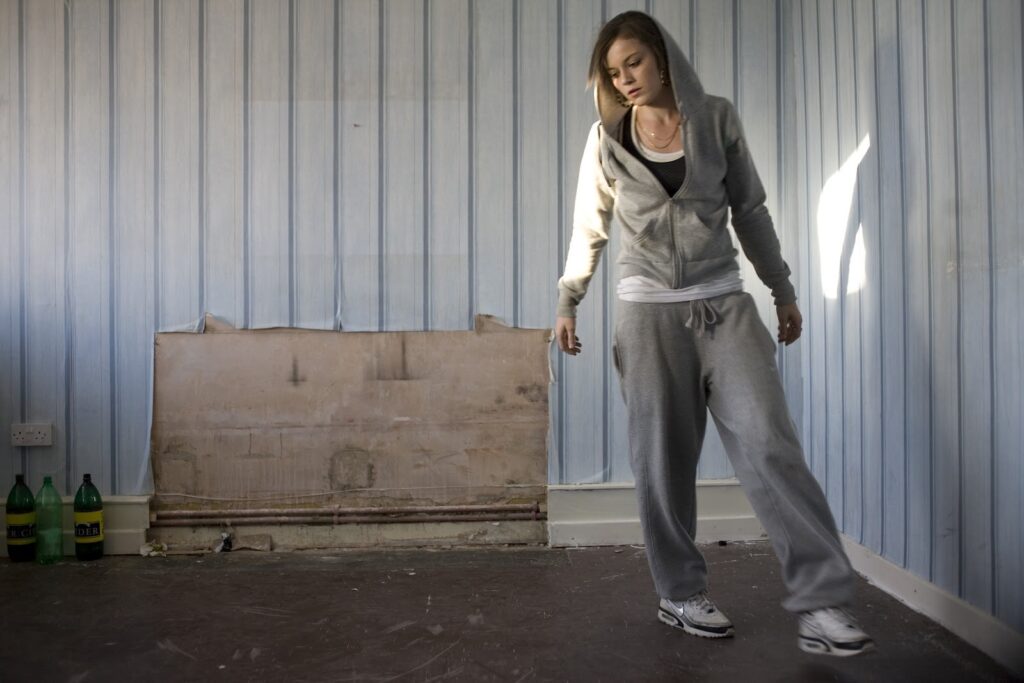
EXCERPT: “While several scholars have noted that Arnold’s camera movement, which creates the physicality of being-in-the-world, is crucial to theorising the film’s phenomenological realism and the visceral, participatory, or even ethical mode of its address, it is less often discussed how Mia’s ceaseless mobility is formally and thematically restrained. In spite of an apparently hopeful ending, Mia’s bodily rhythms are trapped in a more circular, repetitive pattern, rather than forging a forward motion. Therefore, however incessantly mobile Mia and the camera that follows her may be, the way Arnold frames this movement epitomises what I term here, following Berlant’s (2011) work on the cinema of precarity, the aesthetics of impasse, making reference to the film’s ambivalent oscillation between action and inertia, confinement and the promise of escape, breathing and suffocation.”
Labor thought theory: on Frampton and Beller
By Brian Price
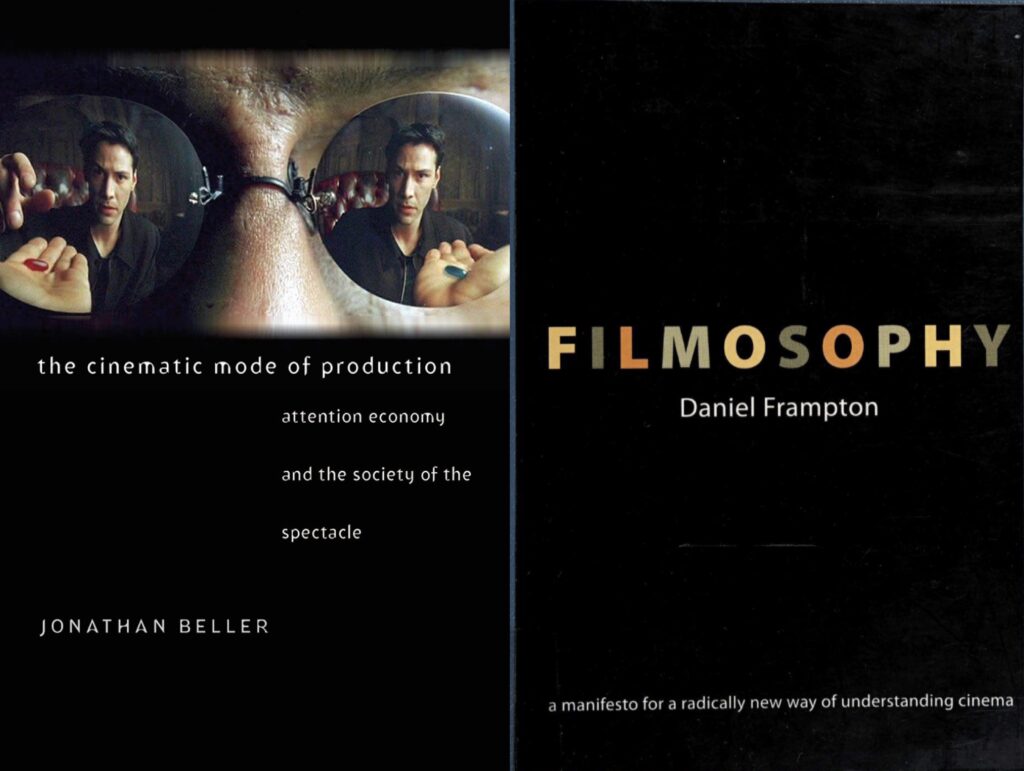
Excerpt: “After all, Frampton’s central ambition in Filmosophy is to demonstrate the ways in which a film can be said to be thinking, so that film can be thought of as thought itself. And there, in the The Pervert’s Guide to Cinema, sits Žižek, thinking – and, even better, talking – from within the space of the films he cherishes.”
Representing public service and post-militariness in Bodyguard (BBC, 2018) [OA]
By Katy Parry

Excerpt: “The value of public service, and by extension the work of public servants, appears to be simultaneously culturally venerated and under attack economically in these times of political turbulence and austerity. While citizens’ relationships with politicians have become strained and remote, both factual and fictional representations of the working lives of police, fire crews, health workers, prison officers, and even soldiers ‘mucking in’ during national crises, have come to dominate television screens.”
Torlasco’s “Philosophy in the Kitchen”: image, domestic labor, and the gendered embodiment of time
By Olivia Landry & Christinia Landry

Excerpt: “An archive of images set to a different beat, ‘Philosophy in the Kitchen’s’ reappropriation of cinema footage spans from as early as 1936 with Alfred Hitchcock’s Sabotage to the period of the post French New Wave with Claude Charbol’s film La Cérémonie (1995). Further, it incorporates classical narrative dramas, such as Jean Renoir’s La Grande Illusion (1937) and radically experimental films, such as VALIE EXPORT’s Unsichtbare Gegner (Invisible Adversaries, 1977). Yet these images are not shown in historical or stylistic succession, they are instead revealed in a synchronic, visual, and thematic relationship.”
The paradoxes of precarious labour in observational documentaries today
By Mike Meneghetti

Excerpt: “Given the mutations in present-day audiovisual production and the arrival of various competing modes of image making, why have filmmakers now rediscovered the usefulness of an observational approach and its attendant focus on ‘person-sized spaces?’ How should we interpret such supposedly anachronistic phenomena? One is tempted to simply link these developments to a modern-day obsession with documenting everyday life on various social media platforms, but the current pervasiveness of observational documentary production is at odds with prevailing understandings of the twenty-first-century’s new media regime.”
Phantom ladies: the war worker, the slacker and the ‘femme fatale’
By Mark Jancovich
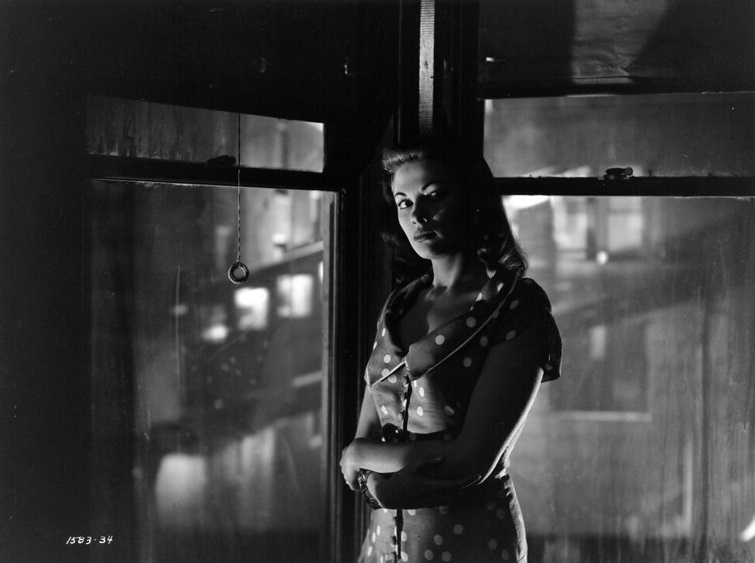
Excerpt: “To the extent that the femme fatale can be said to exist at all, she is anything but the independent working woman of wartime. On the contrary, the women identified as classic femme fatales are, almost without exception, examples of the ‘kept woman’, who had come to signify decadence and corruption during the war years. If it is often claimed that a campaign directing women back to domestic life began in 1944, it reversed an even more insistent campaign to encourage women into wartime jobs in the first place, a campaign that not only presented the female war worker as positive but accused ‘any woman who was not working of being a slacker’ and hence a threat to the war effort (Melosh 1993, 190).”
Reviews

The process genre: cinema and the aesthetic of labor (Duke University Press, 2020) by Salomé Aguilera Skvirsky
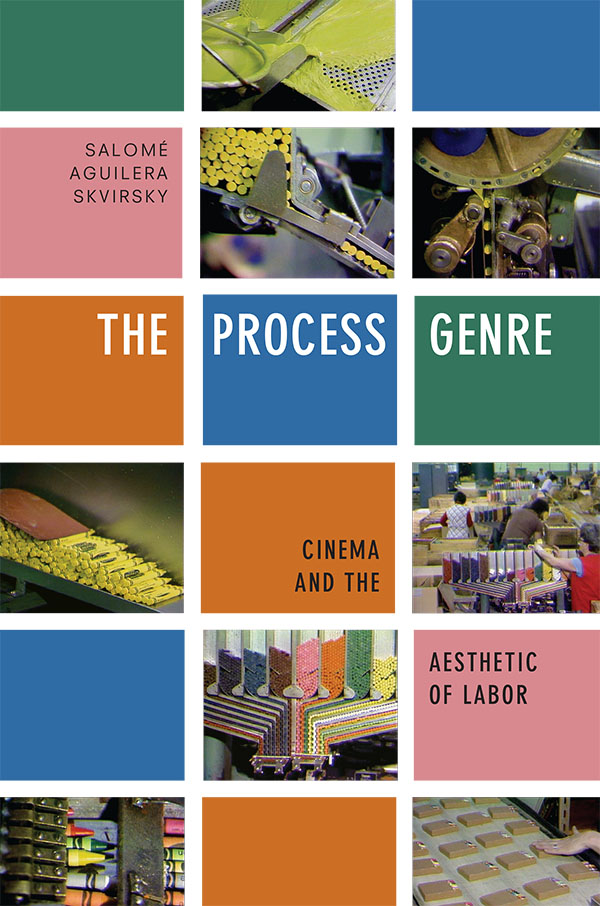
Reviewed by Kit Hughes
Excerpt: “Understanding labor capaciously, as ‘form-giving activities’ (32), the introduction argues process films’ aestheticization of labor is not necessarily bound to exploitative capitalist production, but offers a flexible form suited to exploring different kinds of knowledge and, via its haptic depictions of material processes, bringing viewers into closer contact with their sensual and social worlds.”

Media heterotopias: digital effects and material labor in global film production (Duke University Press, 2018) by Hye Jean Chung
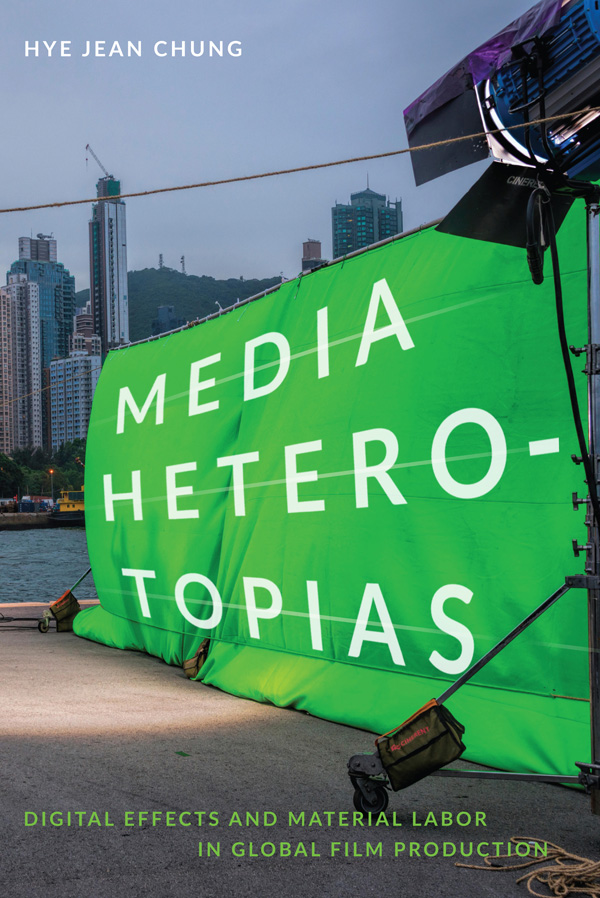
Reviewed by Ekin Erkan
Excerpt: “Using heterotopic analysis as a methodological nexus with which to challenge the notion of cinematic space as smooth, coherent and unified, Chung probes an amalgam of filmic artifacts and methodologies to demonstrate that cinematic space is, indeed, a multilayered assemblage consisting of mediated materialities and composite physical locations. Accordingly, this multiplexed condition is exacerbated by transnational capitalism’s global pipelines. “
Free Access Blog Content
Cinderella on the Homestead: Labor Nostalgia in ‘I Love Lucy’
By Emily Naser-Hall

Excerpt: “I Love Lucy often engages with questions of labor, particularly the division of labor along the axis of gender that characterizes postwar cultural narratives about domesticity, economics, and consumption. By focusing primarily on the housewife within the domestic space, midcentury sitcoms like I Love Lucyfurther entangle labor with affect, such that labor and emotion become interdependent, reinforcing and depending on one another within a complexly gendered matrix.”
On ‘The Process Genre’: An Interview with Salomé Aguilera Skvirsky
By Cinta Pelejà
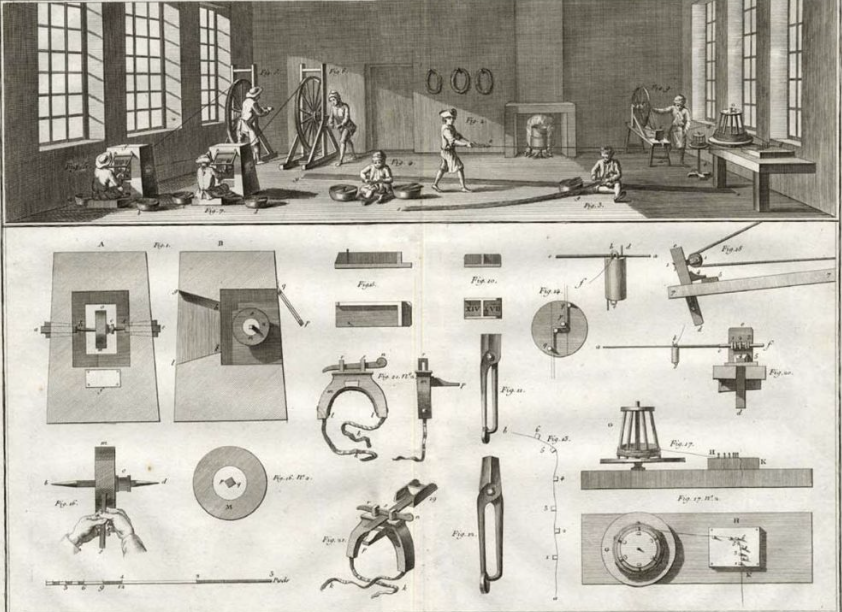
Excerpt: “Because I came to the process genre through Latin American films from the late 1950s and 1960s, films that had not been talked about as being processual or as being about production processes, processual representation felt like a discovery to me. I think that was the virtue or the possibility of coming to this phenomenon as an outsider; I didn’t go through the kind of usual channels and read the usual things, so things looked different to me. I watched films like Mimbre (Sergio Bravo, Chile, 1957) and Aruanda (Linduarte Noronha, Brazil, 1960) and Araya (Margot Benacerraf, Venezuela, 1959) and I felt mesmerized; my ears tingled and my toes floated. These films reminded me of other material I had seen like Robert Flaherty’s Man of Aran (1934). “
Porno Dialectics: An Interview with Heather Berg by Jennifer Moorman
By Jennifer Moorman
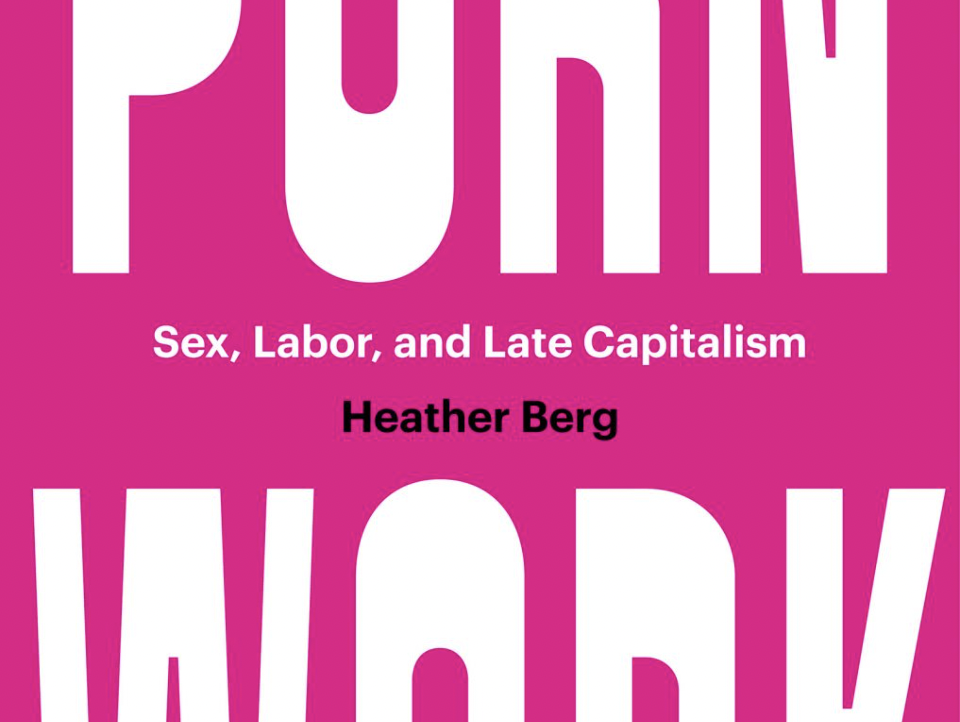
Excerpt:”That matters for countering outsiders’ (or “civilians”’) ideas that porn workers have no power. It also matters for countering managers’ sense that the people that they manage are dumb. There are so many stories in the book, examples of directors and producers and agents talking to me in the most condescending terms about the young women they manage, but then going on to describe all the ways these women outsmart them on the daily. That’s why we need a focus on struggle, both for empirical and political purposes.”
When popular media and political cultures collide: British notions of public service, post-military identity and institutional corruption in ‘Bodyguard’ (BBC 2018)
By Katy Parry

Excerpt: “First, the scandal that Starmer and Johnson were discussing at PMQs concerned former ministers or civil servants employed to lobby government on behalf of commercial interests. Expressly, it was sparked by former prime minister David Cameron’s lobbying current ministers on behalf of Greensill Capital for access to a Covid-related government-backed loan scheme. Much of the media commentary invoked the principles of integrity and honesty in public service, especially as no ‘codes of conduct’ were said to have been broken officially. “
